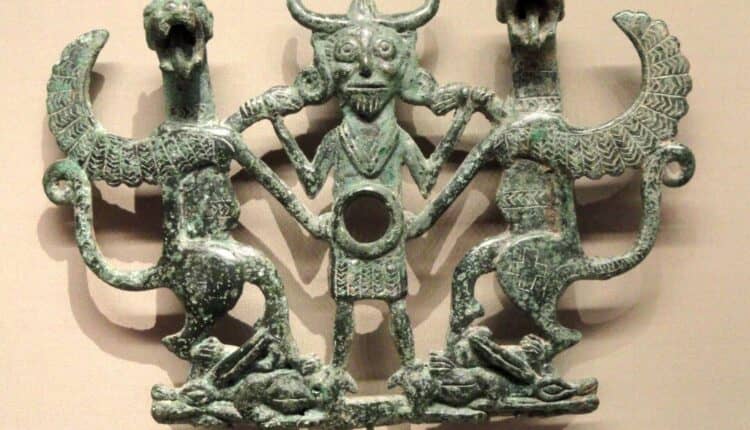Luristan bronze is in the greatest museum of the world
Lorestan is locateded in the Western region of Iran and in fact has had growing interests by archaeologists due to the past and recent findings which are very important
As you are looking at the pictures ,like the considrable museums of the world , such as Louvre in france, Lorestan admiralty-metal (Luristan bronze) ornamented at Azerbaijan museum
An Archaeologist at the University of Spain says more than 54400 years ago ,some intelligence humans lived in Lorestan who then immigrated to Europe
Luristan bronze
The ancient history of Lorestan is closely intertwined with the rest of the Ancient Near East. In the 3rd and 4th millennium BC, migrant tribes settled down in the mountainous area of the Zagros Mountains. The Kassites, an ancient people who spoke neither an Indo-European nor a Semitic language, originated in Lorestān. They would control Babylonia after the fall of the Old Babylonian Empire ca. 1531 BC and until ca. 1155 BC
Luristan was invaded and settled by the Iranian Medes in the 2nd millennium BC. The Medes absorbed the indigenous inhabitants of the region, primarily the Kassites as well as the Gutians, by the time the area was conquered by the Persians in the 1st millennium BC
In February 2017, archeological discoveries related to the Achaemenid era were made in Lorestan for the first time
Bronzes of Luristan the accepted term for a distinct body of metalwork produced in the first half of the first millennium B.C. and characterized by a wide range of idiosyncratic forms and a highly stylized conception of human and animal representation
These bronzes are distinguished from material excavated in Luristan but belonging to earlier periods and from material incorrectly attributed to Luristan. Typical categories of canonical luristan bronze artifacts include cast animal finials, standards with masters of animals, horse cheekpieces, and harness attachments in the form of naturalistic or fantastic creatures, figured and disc pins, whetstone handles, and bracelets.
Among the weapons are swords, daggers, axes, maces, quivers, and halberds. Both casting and repoussé techniques were employed. Among the highly stylized human and animal forms, the zoomorphic juncture plays a significant part, especially for pins, bracelets, and weapons (for more detailed description and discussion of the characteristics of Luristan bronzes, see Vanden Berghe, 1968, pp. 149ff., Figs 6, 8, 9, 11-14; Muscarella, 1988b, pp. 114f.).
Golvani.ir
For more information about Lorestan province, visit the Golvani.ir.
Narrator: Avid Bozorgi, producer: Mehrdad Dehqani, Golvani news agency.
Special thanks to: Nazli Darxor.
